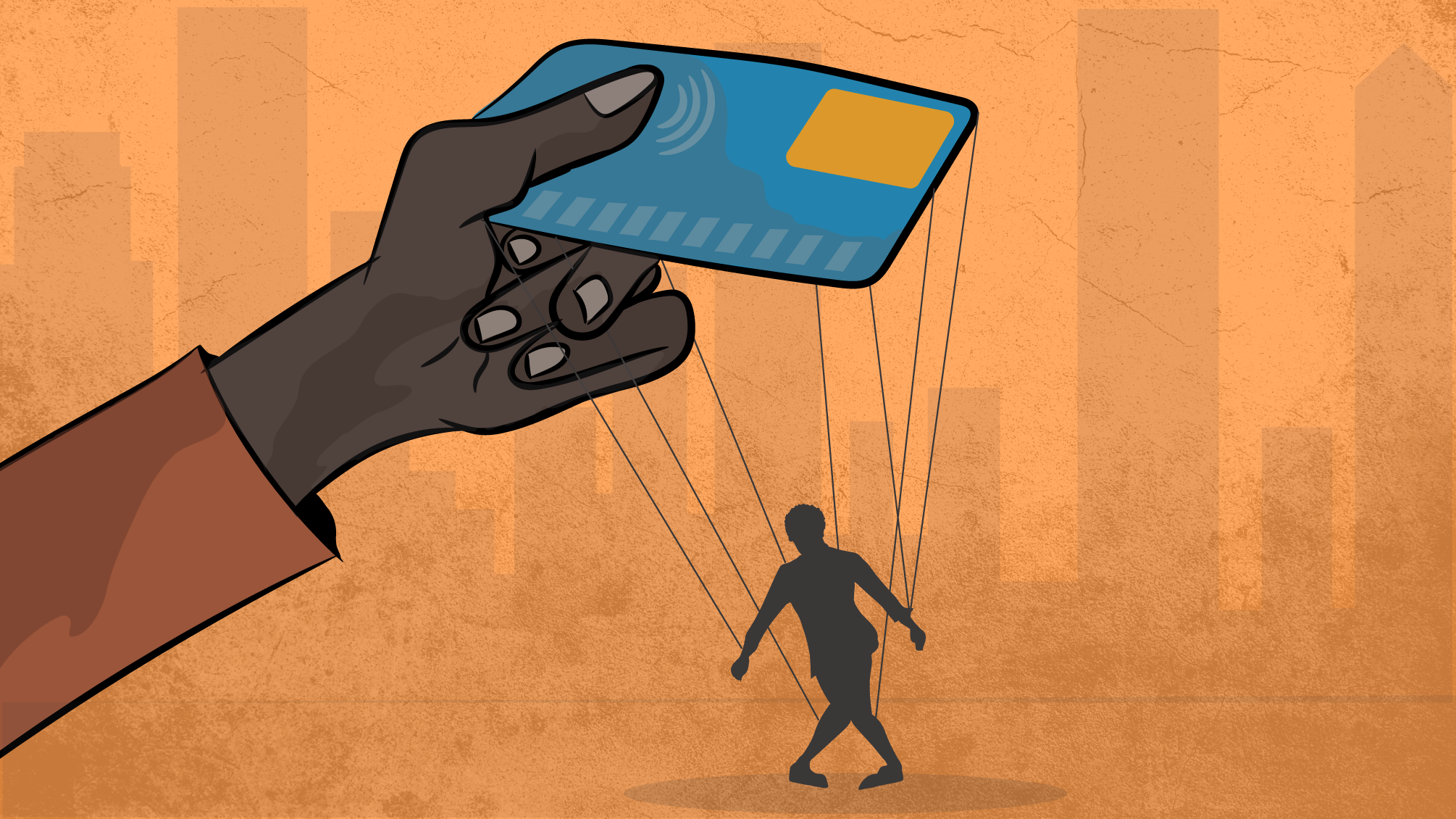
Struggling With Debt? Here’s How To Overcome It With An Abundance Mindset
Debt can seem overwhelming, but YOU are capable of becoming debt-free.
Learning how to manage debt is crucial for getting your finances in the black, but it’s also essential to adopt a mindset that motivates you to persist in your journey to become debt-free.
To create an actionable approach to paying off your debts, you need to use effective personal finance methods while also maintaining an abundance money mindset.
Scarcity vs. Abundance Mindset
Your money mindset plays a crucial role in your ability to make money, save for the future, and overcome debt. You may not be conscious of your mindset, but you’ve constructed this outlook over the course of your life. It reflects your values and how you view money, and your upbringing and past experiences shape this mindset.
For example, if you came from a household that lived paycheck to paycheck, you’ll likely have a different outlook on money than someone who never struggled financially.
Another way your upbringing likely shaped your mindset is how your parents or guardians discussed money. Did they talk about money openly, or was money a taboo subject to discuss? Your experiences continue shaping your outlook, so you may have adopted certain values and beliefs around money as you entered the workforce as well.
Adopting an abundance mindset is critical for achieving greatness in your finances, but approaching money with a scarcity mindset can be detrimental to your financial success.
So what is an abundance money mindset, and how does it differ from a scarcity money mindset?
An abundance money mindset takes competitiveness out of finances. In contrast, a scarcity money mindset promotes the idea that people can accumulate only a finite amount of wealth. With this mindset, you need to compete with others to achieve your financial goals, and any money you earn takes away from everyone else’s wealth. This idea is common in corporate environments and can lead to toxic workplace behaviors.
With an abundance money mindset, you view money as more plentiful. There’s enough money for people to make without taking it away from one another. Rather than view finances as a cut-throat competition, those with an abundant money mindset believe everyone shares the world and its resources, including money.
How to Have an Abundance Mindset
A big part of abandoning a scarcity money mindset in favor of an abundance mindset is avoiding the trap of comparing yourself to others. Everyone is on their own unique journey, so try not to focus on how your finances compare to others. You can allow others’ success to inspire you to achieve more, but don’t think less of yourself just because someone else is in a better financial position.
Another critical part of adopting an abundance mindset is shifting your outlook. You need to focus on overcoming your negative beliefs about money and believe in your ability to achieve your financial goals.
Facing debt can be tremendously overwhelming, but with an abundance mindset, you can believe in your ability to take small actions toward becoming debt-free. Here are a handful of proven strategies you can adopt to accomplish your financial goals and live debt-free with your abundance mindset.
#1. Create a Debt Management Plan
The first step to becoming debt-free is creating a detailed, actionable plan. You can start by adding your total debts, including everything from credit card debt to student loans.
After you write down all your debts, jot down details regarding each form of debt. You can list the lender, the total amount you owe, the debt’s minimum payment, and the interest rate. This list will help you prioritize which debts to focus on once you determine your payment approach.
There are two main approaches for paying off debts: the snowball method of debt and the avalanche method of debt. Both methods are effective, but you’ll need to figure out which is best for you.
The Snowball Method vs. the Avalanche Method
The snowball method targets debts with smaller remaining balances. After making monthly minimum payments on each debt, you focus on attacking the debt with the smallest balance.
For example, if you have $1,000 left on your credit card, you might focus on paying off that debt before focusing on a larger debt, such as paying off your mortgage. You’ll still make the necessary minimum payments for your other debts, but you prioritize paying off the debt with the smallest balance.
Wiping out your smaller debts then motivates you to overcome your larger debts. You snowball your progress by eliminating your smaller debts then you work your way up to your more substantial debts.
The avalanche method takes a different approach to destroy debt. Rather than looking at the smallest balance, you focus on your debts with the highest interest rate.
For example, if your auto loan has an 8% annual percentage rate (APR) while your credit card has a 20% APR, you would focus on your credit card debt first.
The avalanche method can save money because you address your higher interest rates first, but some people will benefit more from the snowball method. The snowball method creates a sense of progress early on, which may motivate you further on your journey to overcoming debt.
And, you might not experience the same sense of accomplishment with the avalanche method because paying off the debt with the highest interest rate may take a long time.
#2. Create a Debt-Destroying Budget
After choosing your method of attack for overcoming your debts, it’s time to create a detailed budget that enables you to pay off some of your balance each month. Budgeting can often be tedious, but a great budget can do wonders for your finances.
There are many different ways to keep track of a budget, and you can find the method that works best for you. Some ways you can record your budget include a spreadsheet, journal, or a phone application that helps you stay organized and focused.
How a Zero-based Budgeting Approach Works
When creating your budget, you can consider adopting a zero-based budgeting approach. With a zero-based budget, you have to justify all of your expenses. The reason why it’s called a “zero-based budget” is because the budget starts at — you guessed it — zero. You build the budget for the upcoming month based on your necessary expenses.
You need to justify each expense when adding it to your zero-based budget, but that doesn’t mean you need to avoid spending money on yourself. For example, you could allocate $100 to spend on eating out because you enjoy dining at restaurants. You justify each expense, and you create a detailed budget around it.
When it comes to overcoming debt, you can create a budget for your necessary expenses and use your remaining money to target your debts.
How to Use the Envelope Budgeting Method
One way you can avoid overspending after creating your budget is by using the envelope budgeting method. With this method, you divide your budget into cash and put the money in envelopes. Once you’ve spent the money in an envelope, you’ve exhausted the budget for that particular expense.
For example, if you determine that you can spend $25 on specialty coffees, you would put $25 in an envelope, and you would only pay for your coffee in cash. Once you spend the money in the designated envelope, you’ve exhausted that part of your budget and can’t spend more.
The envelope method is a great way to ensure that you stick to your budget so that you can continue paying off part of your debt balance each month.
Join In 200 Million+ On The Journey to Greatness
#3. Focus on Abundance in Your Budgeting
Although budgeting will help you pay off more of your debts each month, many people find the process frustrating and overwhelming. Budgets often make people feel overly restricted financially, eventually resulting in them giving up on budgeting entirely.
A key part of becoming debt-free is consistency, so you need to adopt a budgeting plan that you can stick to long term. You can bring abundance into your budgeting to derive more joy from the process.
You can create a budget based on abundance by focusing on how your budget serves you and enables you to do great things. For example, maybe you save a little bit of money each month to go on vacation at the end of the year. Rather than only focusing on saving money, you can focus on the end goal of your budget.
When it comes to budgeting for managing debt, begin to focus more on how great it will feel to become debt-free.
Turn Your Budgeting Sessions Into a Self-Care Practice
You can turn your budgeting practice into an abundance practice. If budgeting always feels daunting and boring, you’ll have a more challenging time sticking with it long-term, so create a budgeting practice that also serves as a self-care practice.
You can change your approach to budgeting by simply making it a more relaxing activity. Rather than hunching over your desk at the end of a long work day, try budgeting in a more comfortable, relaxing environment. Sit in a comfortable chair and get yourself a nice beverage. Maybe you can also dim the lighting slightly and play enjoyable background music.
In addition to working on becoming debt-free, you can also use your abundant budgeting routine to check in with yourself and practice self-care.
#4. Negotiate Higher Pay
Earning more money will help you pay off your debts faster if you stick to your budget. Asking for more money at work may sound uncomfortable or intimidating at first, but you can approach requesting a pay bump respectfully and gratefully.
Express gratitude for your employer when requesting increased pay. Showing that you’re grateful for your employment is a great first step in demonstrating that you both value your work and are also an important part of the business.
Understand Your Value When Negotiating a Raise
Before approaching your employer or supervisor, you first need to research how much of a pay increase you deserve.
You can consider your work experience, skill set, education, and location to determine how much you should earn. You can also evaluate the value you bring to your company. Additionally, if you know that your peers make more money than you, you can use that as evidence that you deserve more compensation.
After determining how much you believe you should make, you need to prepare how you will present your request. Presenting yourself confidently is critical for convincing an employer that you deserve a raise. Consider writing out the key points you’ll make in your conversation with your employer, and practice your delivery in front of a mirror.
When it’s time to discuss money with your employer, talk about how you’ve grown with the company and how you’re an invaluable employee. You can also respectfully present the evidence you gathered when researching, such as the average wage of others in your industry.
If your employer declines, think of it as a learning experience! You may not be able to negotiate a higher wage at this time, but the process will better prepare you for negotiating a raise or higher salary in the future.
#5. Create Good Financial Habits
Positive habits are a critical part of accomplishing your goals, and this includes healthy financial habits. In addition to creating a strong debt management plan and budget, you can implement more practices such as living below your means, reducing impulse spending, and scrutinizing your credit card and bank statements.
Living below your means is a great way to reduce your debts quickly. Rather than spending more as you earn more, you can focus on living a frugal lifestyle to pay off more of your debts each month.
Although reducing the amount you spend will help you combat your debt, you also need to think about your long-term ability to maintain this habit. Even when living below your means, allow yourself to spend money on things that bring you joy, such as eating at restaurants. If you’re too rigid with your spending, you’ll have a harder time maintaining the habit long-term.
Even though you should spend money on yourself, you still need to stick to your budget and avoid making too many impulse purchases. For example, it’s okay to purchase a shirt impulsively if you allocate a certain amount of money for clothes. Still, you need to ensure that your impulse purchases don’t cause you to spend more than your budget allows.
Finally, paying close attention to your credit card and bank statements is crucial for your financial health. This will give you a better understanding of where your money goes every month, and you’ll likely discover areas where you can reduce your spending. You may even have a subscription or two that you completely forgot about that’s unnecessarily draining your account every month.
Scrutinizing your financial statements will also help you create the most optimal budget so that you can move closer to becoming debt-free!
Not Sure Where to Start? Check Out These Helpful Resources
Although there are many actionable steps you can take to becoming debt-free with an abundant mindset, the process can still be incredibly daunting. We understand that some people may need additional assistance to get started.
Fortunately, The School of Greatness has featured numerous financial experts who can help you learn more about becoming debt-free. Our interviews with Rachel Rodgers, Jaspreet Singh, and Ramit Sethi are packed with useful advice that can help you achieve financial greatness.
We know that facing debt is challenging, but you can do this. Create an actionable personal finance plan that revolves around an abundance mindset so you can live your life debt-free!
Greatness Authors
Greatness Authors is a collection of writers, thinkers, curiosity experts, and students of the world who are committed to bringing you the most up-to-date, impactful, and inspiring information surrounding Greatness topics.
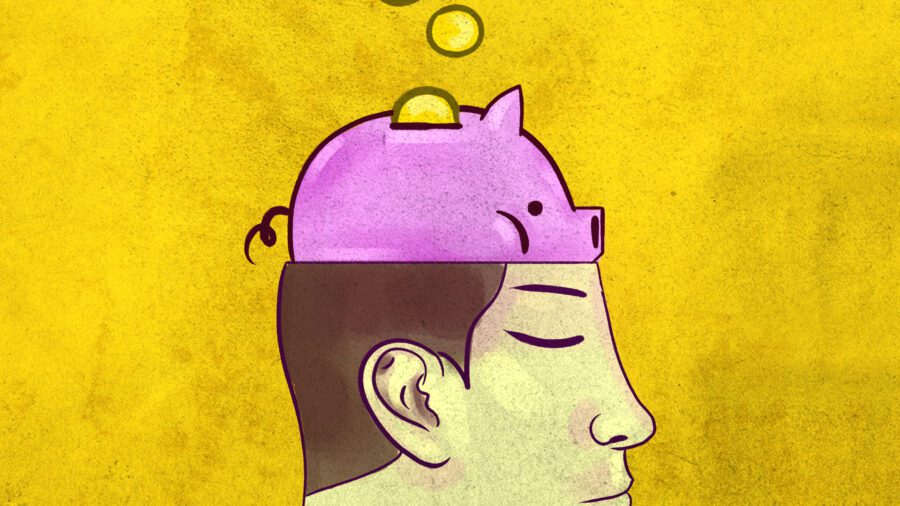
Before You Retire, Ask Yourself These 7 Financial Questions to Make Sure You’re in the Clear
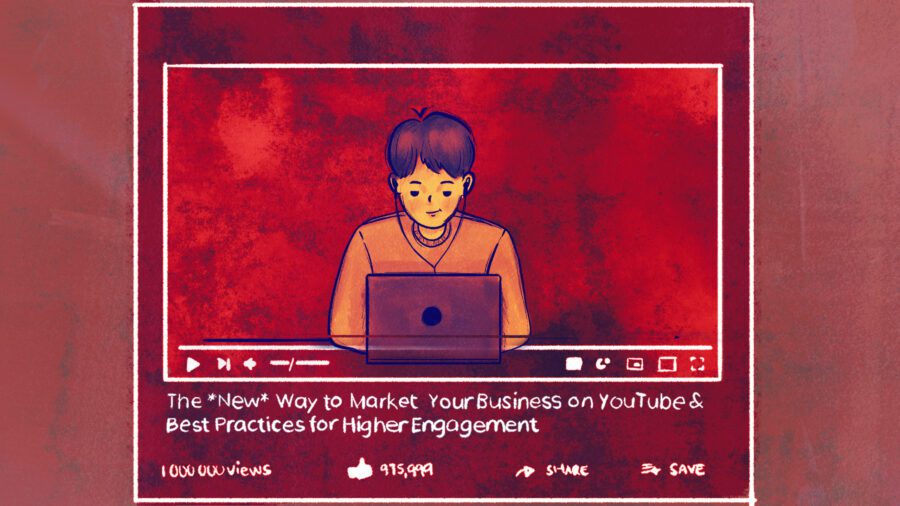
The *New* Way to Market Your Business on YouTube & Best Practices for Higher Engagement

The Power of Masterminds to Grow Your Business and How to Find One Near You
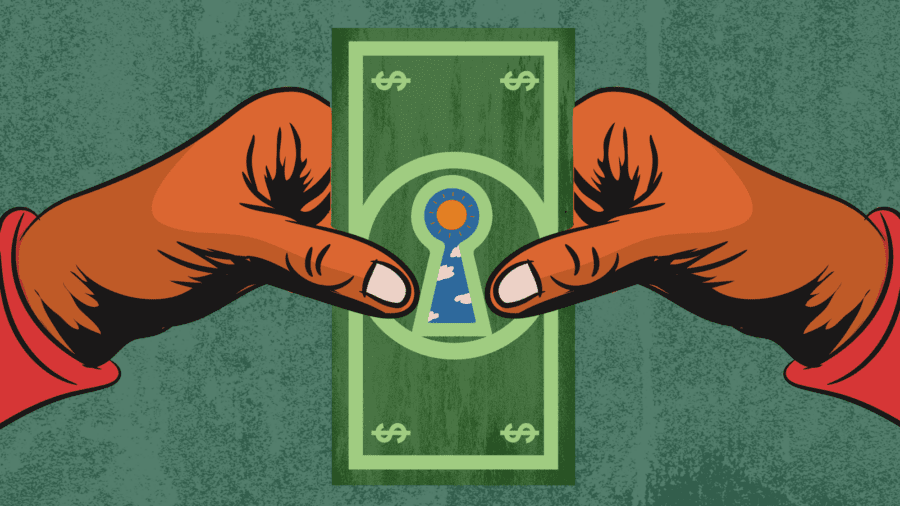
4 Inspirational Stories That Prove Money Isn’t the Key to Happiness
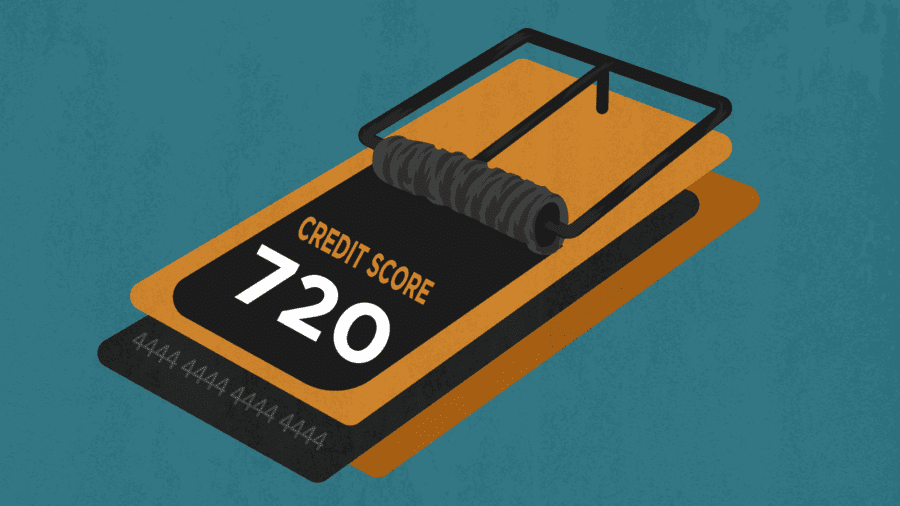
A Beginner’s Guide to Building a Great Credit Score While Avoiding Debt and Common Credit Mistakes












